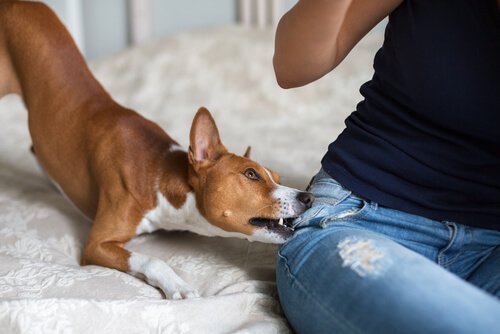Why do some people not like animals?

Animal lovers should always avoid judging people who may not like animals as much as them, and vice versa. Of course, under no circumstances are violence and abuse against living beings justified.
There are a lot of different opinions and feelings on the issue. There are many people who love animals and treat them almost like humans. Why do some people not like animals?
Controversy is seen on social media among users regarding their feelings towards animals. Some owners feel an immense love for dogs, cats, horses or other animals, and other people consider the treatment that the animals receive to be “overdoing” it.
Another side, or extreme, of the issue is seen in vegans who do not consume any product of animal origin out of respect for the animals. All opinions are valid, but it is certainly an interesting question.
People who do not like animals
Society should celebrate diversity, and our relationship with animals is part of it. It’s fine to rally behind a cause, but you should not despise others for not being in favor of it.
Other aspects must also be taken into account:
- If certain people do not like animals, this does not mean that they are “cold” or “unfeeling”. On the contrary, they may be very warm and loving in their relationships with people.
- On the other hand, there are isolated, withdrawn people who have no relationships with other human beings and instead take refuge in animals, pouring out all of their affections into them.

The world is big, and there is room for all opinions. We just need respect, acceptance and tolerance of the opinions of others.
Why do some people not like animals?
There are some interesting things to keep in mind here. In the first place, we should understand that the concept of ‘animals’ varies between people.
- There are people who adore dogs but hate cats, for example, and vice versa. The varying nature and attitude of animals is sometimes the reason. Dogs are protective and affectionate, while cats are usually more independent and individualistic.
- Some people like having reptiles as pets but have no interest in traditional pets like dogs, cats or birds. This is also an opinion that must be respected.
- Some people love having pet fish in an aquarium, but they detest other animals. Fish are silent. They don’t bother anyone; they don’t wander around the house. Fish don’t need to go out. They don’t break things or make a mess, and they don’t make noise either: the opposite of traditional pets.
- Some people say that they love animals, but they treat them like toys: bows, hairstyles, dresses, accessories. It begs the question of whether this attitude is really love.
- For some people, looking after an animal means chaining it or caging it. They say they like animals, but they have neither the time nor the inclination to take care of them. Generally, these are people who travel or work a lot and as a result, they neglect their pet.
- Psychological theories have tried to explain through family history why certain people do not like animals. These explanations speak of childhood traumas or unresolved episodes in the past.

Pets and wild animals
There are many people who do not want animals living in their own home but admire them in their natural habitats. This type of opinion is sometimes framed by the belief that animals suffer if they are domesticated.
With regard to clothing for animals, some animal lovers cannot stand to see dogs dressed up and looking like stuffed animals. A rejection of animals being dressed up is sometimes interpreted as a rejection of the animals themselves, but it’s the opposite. It is love towards a living being for what it is, as nature created it.
